If you’re a car enthusiast, you’re probably familiar with the reputation of German car brands. Known for their precision engineering, sleek design, and innovative technology, German cars have been a staple in the automotive industry for decades. But what exactly makes German car brands so special? In this article, we’ll explore the history and legacy of German car brands, major German car manufacturers, innovation and technology in German cars, design and features of German cars, market presence and competitive landscape, and answer some frequently asked questions.
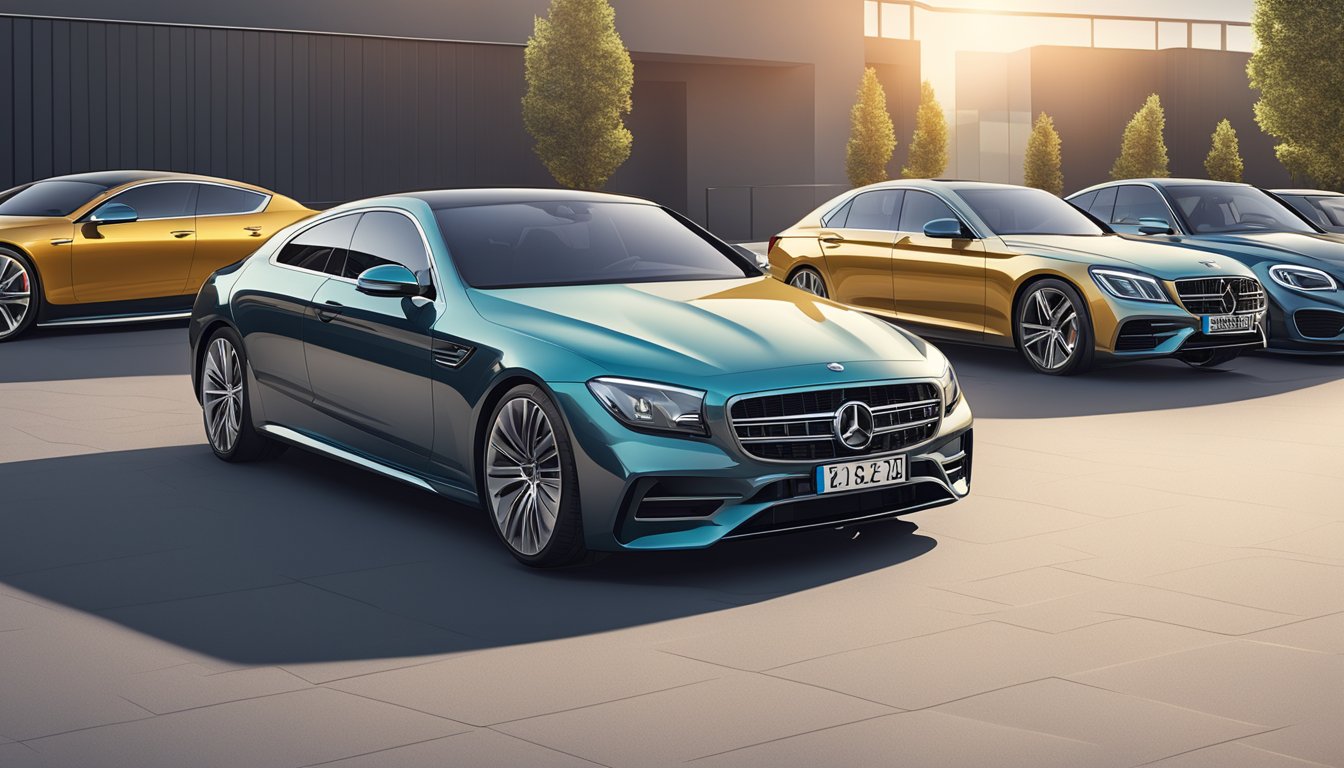
German car brands have a long and storied history, dating back to the late 1800s. Since then, German car manufacturers have consistently been at the forefront of automotive innovation, producing some of the most iconic and recognizable cars in the world. From the sporty and agile Porsche 911 to the luxurious and comfortable Mercedes-Benz S-Class, German car brands have something for everyone.
In addition to their impressive history and legacy, German car brands are also known for their cutting-edge technology and innovative features. From advanced safety systems to state-of-the-art infotainment systems, German cars are designed to provide the best driving experience possible. With so much to offer, it’s no wonder that German car brands are so popular among car enthusiasts and casual drivers alike.
Key Takeaways
- German car brands have a long and storied history of producing some of the most iconic and recognizable cars in the world.
- German car manufacturers are consistently at the forefront of automotive innovation, producing cutting-edge technology and innovative features.
- German cars are designed to provide the best driving experience possible, with advanced safety systems and state-of-the-art infotainment systems.
History and Legacy of German Car Brands
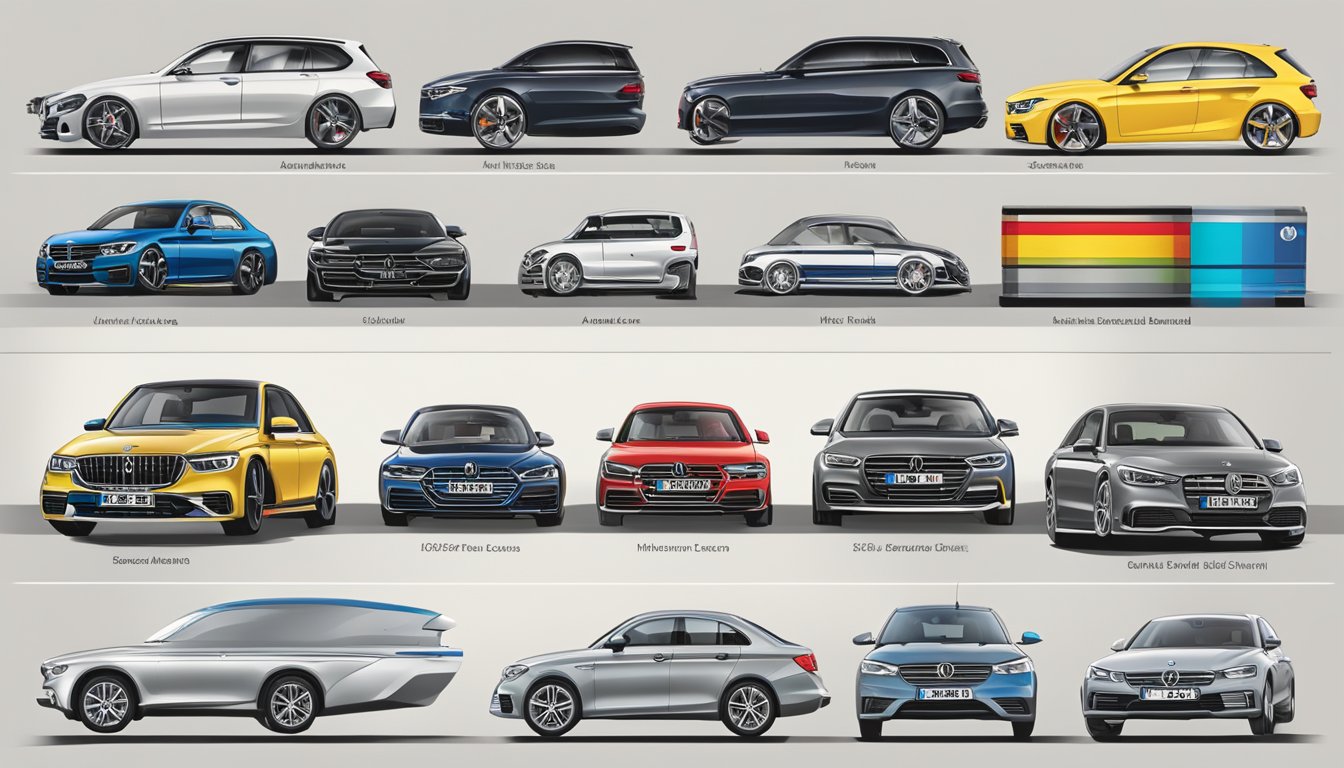
Germany has long been associated with the automotive industry and has a rich history of engineering and innovation. The country has produced some of the most iconic and well-known car brands in the world. In this section, we will explore the origins of German automotive engineering and the legacy that it has left on the industry.
The Origins of German Automotive Engineering
The history of German automotive engineering can be traced back to the late 19th century when Karl Benz and Gottlieb Daimler invented the first gasoline-powered vehicles. In 1901, Ferdinand Porsche designed the Lohner-Porsche, which was the first hybrid vehicle. This paved the way for future innovations in the industry.
In 1902, Adam Opel AG was founded, and in 1909, August Horch founded his own car company, which later became Audi. These companies, along with Mercedes-Benz and BMW, would go on to become some of the most well-known German car brands.
Iconic Models and Their Evolution
One of the most iconic German cars is the Volkswagen Beetle, which was first produced in 1938. The Beetle was designed by Ferdinand Porsche and quickly became a symbol of German engineering and innovation. Another iconic German car is the Porsche 911, which was first introduced in 1963 and has since become one of the most recognizable sports cars in the world.
Over the years, German car brands have continued to innovate and evolve. Today, German cars are known for their precision engineering, advanced technology, and high-quality craftsmanship. Brands such as Mercedes-Benz, BMW, and Audi continue to produce some of the most sought-after cars in the world.
In conclusion, the history and legacy of German car brands is a testament to the country’s engineering prowess and innovation. From the invention of the Motorwagen to the production of some of the most iconic cars in the world, German car brands have left an indelible mark on the automotive industry. With their continued focus on precision engineering and innovative technology, German car brands will undoubtedly continue to shape the industry for years to come.
Major German Car Manufacturers
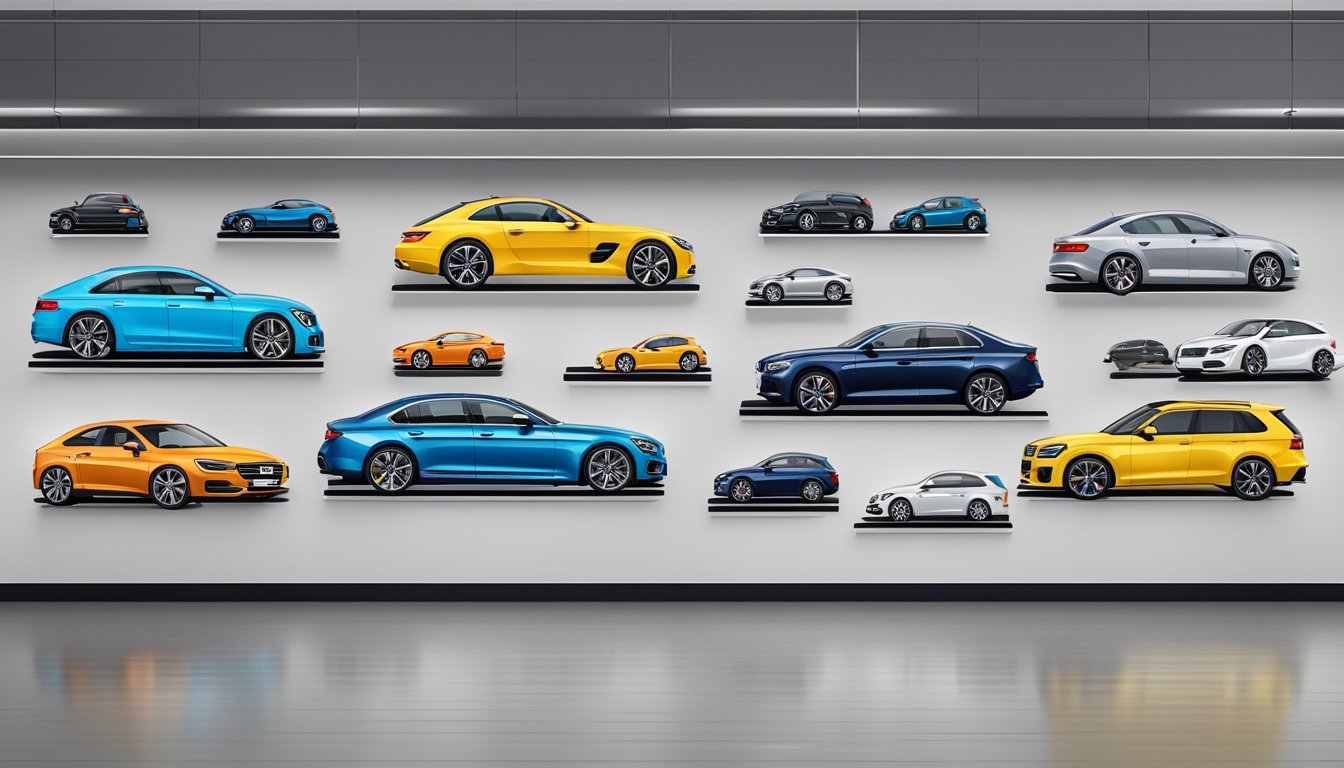
Germany is known for its high-quality and luxurious car brands, and it is home to some of the biggest and most prestigious car manufacturers in the world. In this section, we will take a closer look at some of the major German car manufacturers, their history, and their most popular models.
Volkswagen Group
The Volkswagen Group is the largest car manufacturer in Germany and one of the largest in the world. The group is headquartered in Wolfsburg, Lower Saxony, and it is responsible for producing some of the most iconic car brands in the world, including Volkswagen, Audi, Porsche, and Lamborghini.
Volkswagen is the flagship brand of the group and is known for producing reliable and affordable cars such as the Golf, Passat, and Polo. Audi, on the other hand, is known for producing luxury cars such as the A4, A6, and A8, while Porsche is known for its high-performance sports cars such as the 911, Boxster, and Cayman.
BMW Group
The BMW Group is another major German car manufacturer that is known for producing luxury cars and motorcycles. The group is headquartered in Munich and is responsible for producing some of the most iconic car brands in the world, including BMW, Mini, and Rolls-Royce.
BMW is the flagship brand of the group and is known for producing high-performance luxury cars such as the 3 Series, 5 Series, and 7 Series. Mini, on the other hand, is known for producing small and stylish cars such as the Cooper and the Countryman, while Rolls-Royce is known for producing some of the most luxurious and expensive cars in the world, such as the Phantom and the Ghost.
Daimler AG
Daimler AG is a German multinational automotive corporation that is headquartered in Stuttgart, Germany. The company is responsible for producing some of the most iconic car brands in the world, including Mercedes-Benz, Smart, and Maybach.
Mercedes-Benz is the flagship brand of the company and is known for producing luxury cars such as the C-Class, E-Class, and S-Class. Smart, on the other hand, is known for producing small and eco-friendly cars such as the Fortwo and the Forfour, while Maybach is known for producing some of the most luxurious and exclusive cars in the world.
Audi and Its Heritage
Audi is a German luxury car manufacturer that is headquartered in Ingolstadt, Bavaria. The company is a subsidiary of the Volkswagen Group and is known for producing high-performance luxury cars such as the A4, A6, and A8.
Audi has a rich heritage and has been producing cars since 1909. The company has a reputation for producing some of the most innovative and technologically advanced cars in the world, and it has won numerous awards for its designs and engineering.
In conclusion, Germany is home to some of the most prestigious and iconic car brands in the world. The major German car manufacturers such as Volkswagen, BMW, Daimler AG, and Audi are known for producing high-quality and luxurious cars that are admired by car enthusiasts all over the world. If you are looking for a high-performance and luxurious car, then you cannot go wrong with a German car.
Innovation and Technology in German Cars
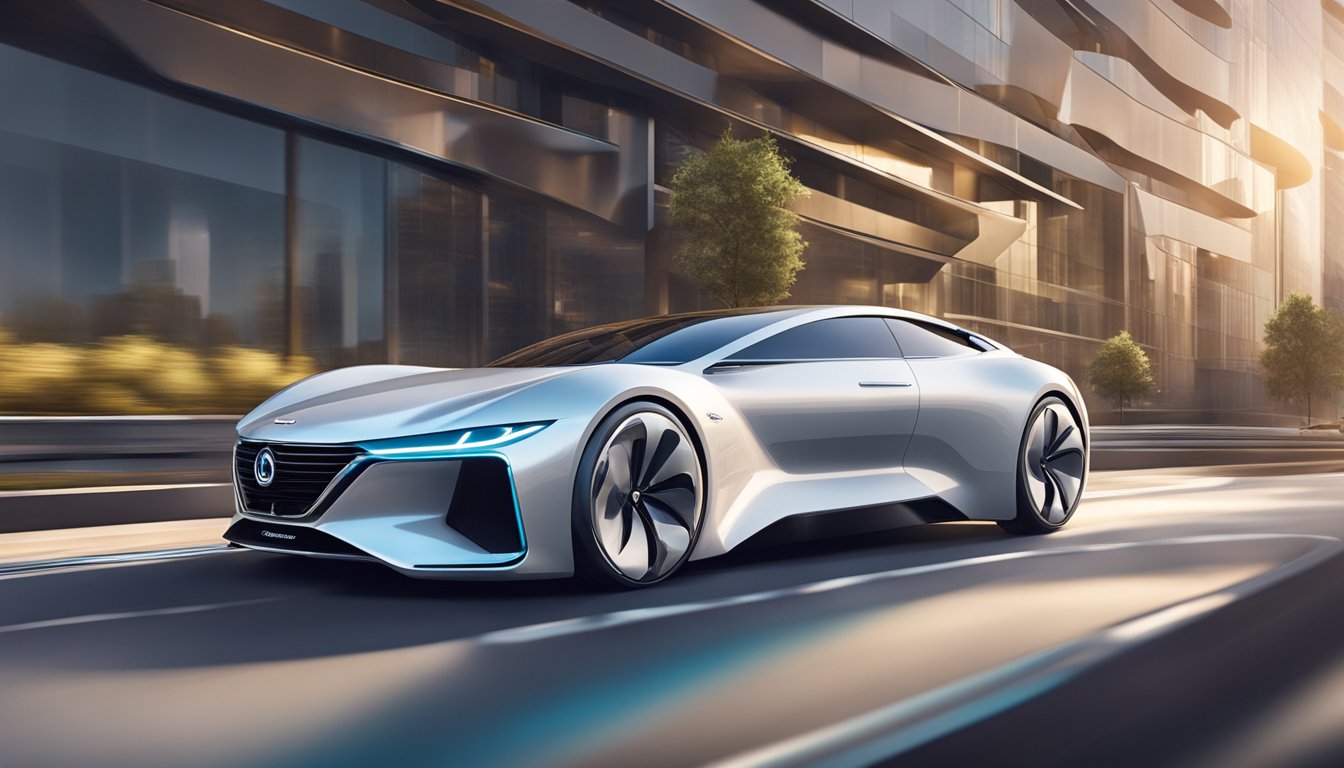
German car brands are known for their cutting-edge technology and innovation in the automotive industry. They have always been at the forefront of automotive advancements and have been pushing the boundaries in terms of luxury, technology and high-performance engineering.
Advancements in Electric Vehicles
German car brands have been investing heavily in electric vehicles and have been leading the way in this field. They have been developing electric cars that are not only environmentally friendly but also high-performance and luxurious. Some of the popular electric cars from German car brands include the BMW i3, Audi e-tron, and Mercedes-Benz EQC.
The BMW i3 is a prime example of German innovation in electric vehicles. It is a luxury car that is powered by an electric motor and has a range of up to 153 miles on a single charge. The car is made from sustainable materials and has a futuristic design that stands out from the crowd.
High-Performance and Engineering
German car brands are renowned for their high-performance and engineering. They have been pushing the limits of internal combustion engines and have been developing hybrid and electric cars that are just as powerful as their petrol counterparts.
One of the most iconic German car brands is Audi, known for its quattro all-wheel drive system and advanced engineering. The Audi R8 is a high-performance supercar that has won numerous awards for its cutting-edge technology and design. It is a car that is not only fast but also elegant and luxurious.
German car brands have always been at the forefront of automotive innovation, and their commitment to advanced technology and engineering is evident in their electric and hybrid cars. They have set the standard for luxury and high-performance cars, and continue to push the boundaries in terms of what is possible in the automotive industry.
Design and Features of German Cars
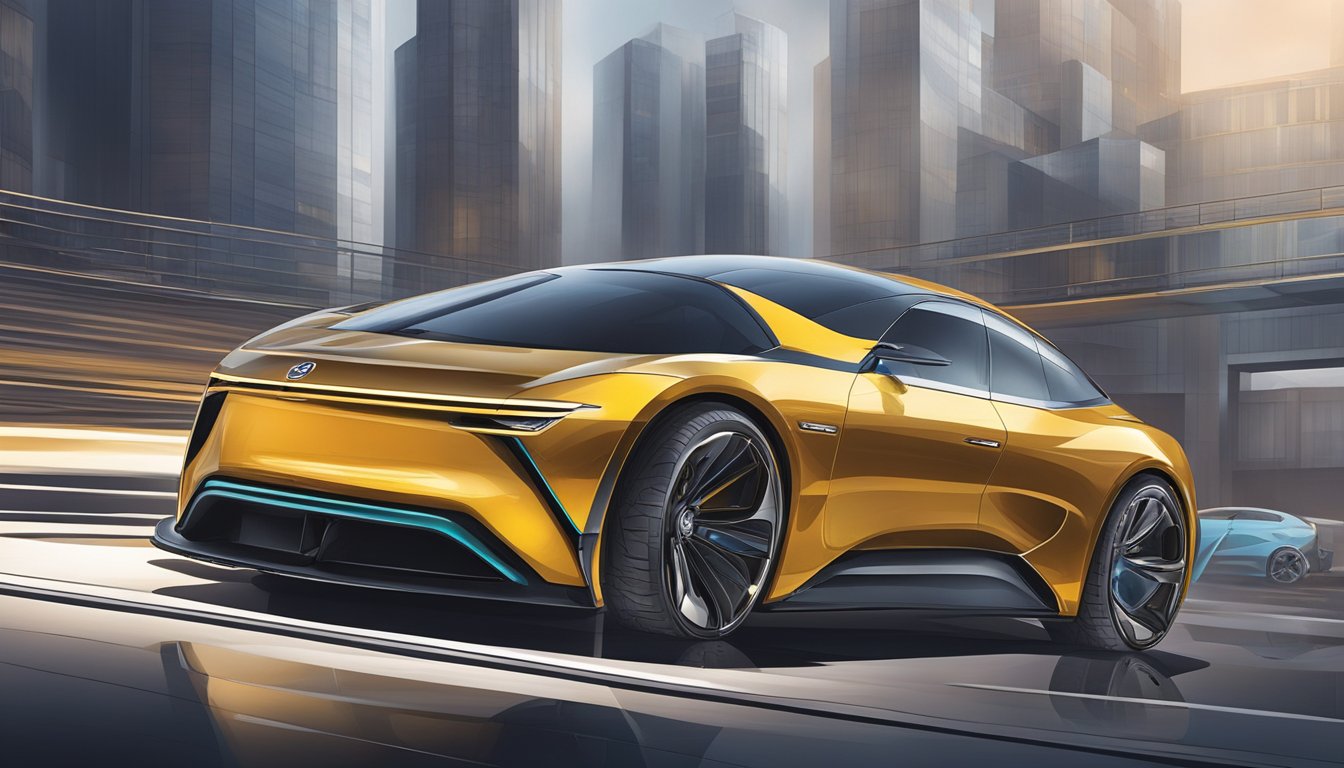
German car brands are known for their exceptional engineering, innovative designs, and luxurious features. When it comes to the design of German cars, you can expect a blend of style and functionality. German cars have a reputation for being sleek and sophisticated, with a focus on precision and attention to detail.
Luxury and Comfort
German car brands like Mercedes-Benz, BMW, and Audi are known for their luxurious interiors, which are designed to provide maximum comfort to the driver and passengers. The leather seats, high-quality materials, and advanced technology make German cars stand out from the crowd. For example, the Mercedes-Benz S-Class is a luxury sedan that is known for its opulent interior and advanced features. The car has a massage function, ambient lighting, and a Burmester surround sound system that provides an immersive audio experience.
Sportiness and Performance
German car brands are also known for their high-performance sports cars that are designed for speed and power. Brands like Porsche and BMW have a range of high-performance sports cars that are popular among car enthusiasts. These cars are designed to provide an exhilarating driving experience, with features like advanced suspension systems, powerful engines, and aerodynamic designs.
For example, the Porsche 911 Turbo is a high-performance sports car that is designed for speed and precision. The car has a top speed of 205 mph and can go from 0 to 60 mph in just 2.7 seconds. The car also has a range of advanced features like adaptive aerodynamics, active suspension management, and Porsche Torque Vectoring Plus.
German car brands also have a range of SUVs, coupes, and convertibles that are designed to provide a blend of sportiness and luxury. For example, the Volkswagen Tiguan is a compact SUV that is designed for families who want a car that is both practical and stylish. The car has a range of advanced features like a panoramic sunroof, a digital cockpit, and a range of driver assistance systems.
In conclusion, German car brands are known for their exceptional design and features, which make them stand out from the crowd. Whether you are looking for a luxury sedan or a high-performance sports car, German car brands have something to offer. With their blend of style, functionality, and advanced technology, German cars are a great choice for anyone who wants a car that is both practical and exciting to drive.
Market Presence and Competitive Landscape
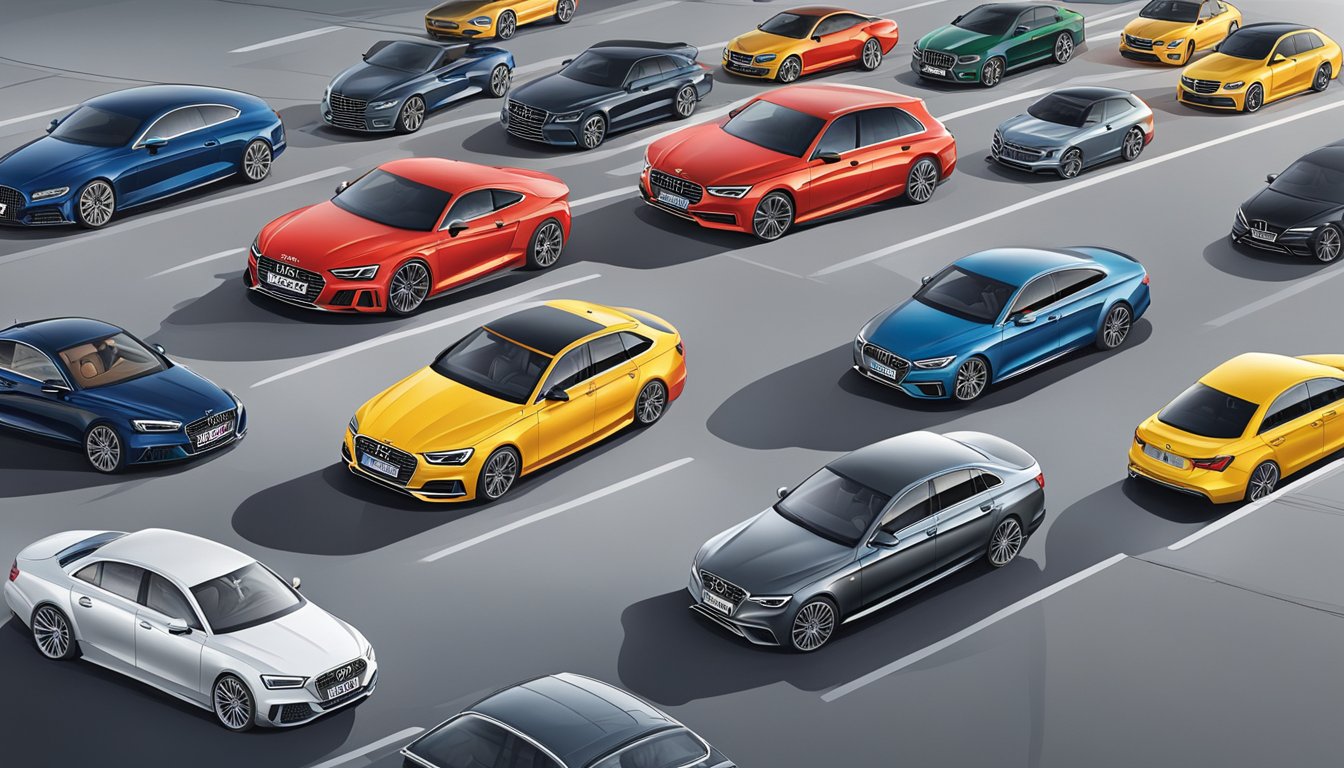
If you’re a car enthusiast, you already know that German cars are renowned for their quality and performance. With a market share of 35.6%, German cars are among the most popular in the world. The German automotive industry is highly competitive, with many established brands and new entrants vying for market share.
Global Impact and Market Share
German car brands have a strong global presence, with companies like Volkswagen, BMW, and Mercedes-Benz exporting their vehicles to countries around the world. In fact, the European Union is the largest export market for German cars, followed closely by China. German cars are also popular in the United States, where they compete with American and Japanese car brands like Toyota, Ford, and GM.
Competition and Challenges
Despite their success, German car brands face stiff competition from other established and emerging brands in the automotive industry. Ford of Europe, for instance, is a major competitor in the European market, while Rolls-Royce is a top competitor in the luxury car segment. German car brands also face challenges related to sustainability and electric vehicles, as they work to meet ambitious targets around decarbonization and safety.
Overall, German car brands continue to dominate the automotive industry, thanks to their reputation for quality and performance. With new challenges and opportunities emerging in the market, the future looks bright for these iconic car brands.
Frequently Asked Questions

Which marque leads the pack in German automotive engineering?
When it comes to German automotive engineering, there are a few brands that stand out. However, it’s difficult to pick just one marque that leads the pack. Brands like BMW, Mercedes-Benz, and Audi are all known for their exceptional engineering, innovative designs, and exceptional driving feel. Porsche is another brand that is known for its engineering prowess, particularly in the sports car market. Ultimately, the answer to this question depends on what you’re looking for in a car.
What are the names of Germany’s luxury car manufacturers?
Germany is home to several luxury car manufacturers, including BMW, Mercedes-Benz, Audi, and Porsche. These brands are known for producing high-end vehicles with exceptional performance, innovative designs, and cutting-edge technology. Other luxury car brands that are based in Germany include Maybach, which is owned by Mercedes-Benz, and Wiesmann, which produces high-performance sports cars.
Can you list some of the classic car brands from Germany?
Germany has a rich history of producing classic cars, many of which are still highly sought after by collectors today. Some of the most iconic German classic car brands include Volkswagen, Porsche, Mercedes-Benz, and BMW. Other classic German car brands include Audi, Opel, and NSU.
How do German vehicles fare when compared to their Japanese counterparts?
German and Japanese vehicles are both known for their exceptional engineering and reliability. However, German vehicles are often considered to be more luxurious and performance-oriented than their Japanese counterparts. German cars also tend to have more advanced technology and safety features. On the other hand, Japanese vehicles are often more affordable and fuel-efficient than German cars.
What are some of the lesser-known German car manufacturers?
While brands like BMW, Mercedes-Benz, and Audi are well-known around the world, there are several lesser-known German car manufacturers that are worth exploring. These include brands like Alpina, which specializes in high-performance BMW vehicles, and Artega, which produces luxury sports cars. Other lesser-known German car brands include Gumpert, which produces high-performance sports cars, and Melkus, which produces hand-built sports cars.
Which German cars are most favoured by motorists in Germany?
In Germany, motorists tend to favour German-made cars, particularly those produced by BMW, Mercedes-Benz, and Volkswagen. These brands are known for their exceptional engineering, reliability, and performance. Other popular German car brands in Germany include Audi, Porsche, and Opel. However, the specific models that are most favoured by motorists in Germany can vary depending on factors like price, performance, and personal preferences.




